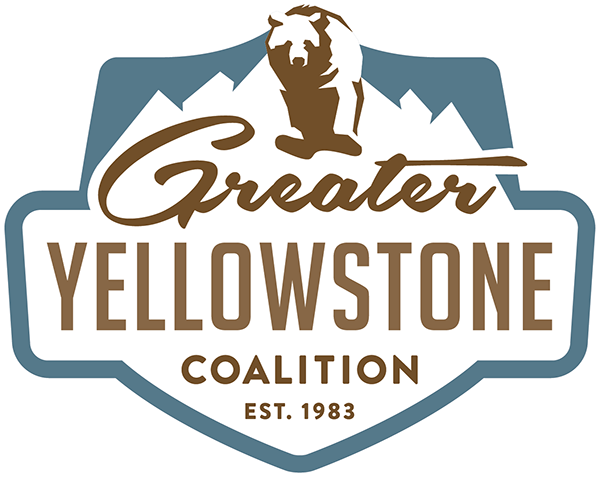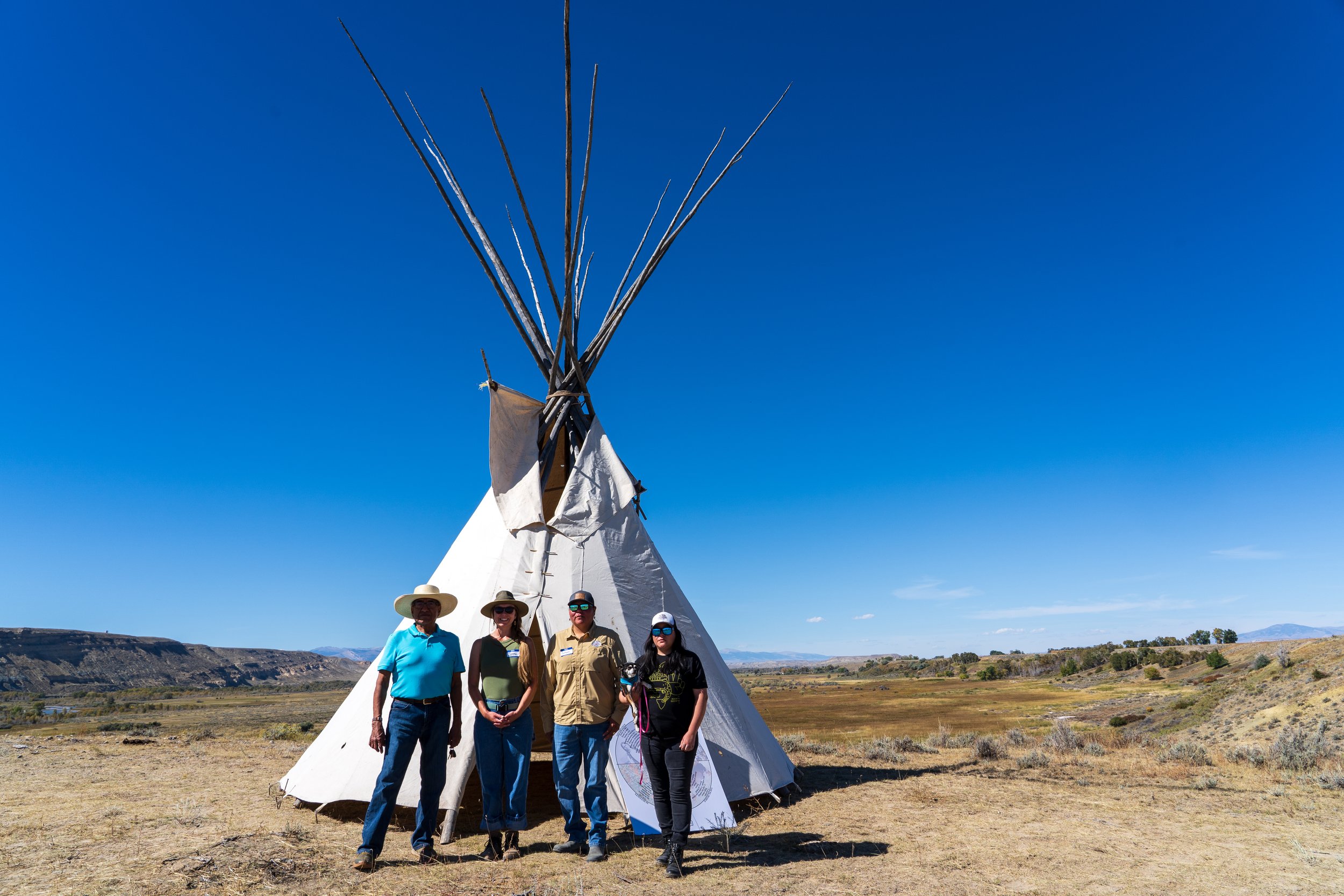Wind River Tribes, Greater Yellowstone Coalition awarded $620,000 to promote buffalo conservation, habitat restoration and climate resilience
In late 2023, we secured one of the most powerful funding opportunities for the Indigenous-led conservation work on the Wind River Indian Reservation.
The Wind River Indian Reservation, the Eastern Shoshone and Northern Arapaho Tribes, and the Greater Yellowstone Coalition has been awarded a $619,500 grant from the National Fish and Wildlife Foundation (NFWF) and through its America the Beautiful Challenge.
The grant will be used to strengthen the vision of members of both Tribes to attain their long-term goal of restoring a tribal buffalo herd on the Wind River Reservation. It’ll also support habitat restoration on the Big Wind River, support a community engagement program, and develop a strategic plan that promotes food sovereignty, buffalo conservation, river restoration, ecosystem health, and opportunities for climate resilience.
“The mission of the Greater Yellowstone Coalition – working with all people to protect the lands, water, and wildlife of the Greater Yellowstone Ecosystem – fits in with Indigenous values and beliefs. We believe water is life, buffalo is power, and food is healing. Thanks to the grant from the National Fish and Wildlife Foundation, our team is ready to elevate Tribal conservation priorities within this important corner of the Greater Yellowstone Ecosystem.”
-Wes Martel, GYC Senior Wind River Conservation Associate
The Indigenous Peoples of the Greater Yellowstone Ecosystem are the steadfast stewards of this remarkable region. Since time immemorial, a deep and evolving repository of Traditional Ecological Knowledge has been used to live in dynamic reciprocity with nature.
Traditional Ecological Knowledge plays a significant role in sustainable management of natural resources that are considered “life sources” for Indigenous people. By incorporating Traditional Ecological Knowledge into all elements of this work, cultural knowledge is passed down from generation to generation and important relationships are maintained with the land, water, and buffalo that are centered upon reciprocity.
In 2021, the Greater Yellowstone Coalition opened its first office on the Wind River Indian Reservation with the hiring of Wes Martel. Wes was brought on to lead the new GYC Tribal branch and work with Tribal partners to elevate Indigenous voices and protect the cultural, spiritual, and ecological integrity of Greater Yellowstone. The funding from this grant will boost the incredible work Wes, Colleen Friday, Signa McAdams, and other GYC staff do in this remarkable corner of the ecosystem.
(L-R) GYC’s Senior Wind River Conservation Associate Wes Martel, Haub School of Environment and Natural Resources Graduate Assistant Janna Black, and GYC’s Wind River Conservation Organizers Colleen Friday and Signa McAdams at the 2023 Indigenous Youth Climate and Culture Camp. (Photo GYC/London Bernier)
“I have been working to further the goals of the Wind River Water Resources Control Board to upgrade the technical and administrative presence of TWE administrators and staff. Additionally, we need to begin addressing the impacts of drought and climate change that we have seen in recent years and work with the Elders and communities of both Tribes to make sure the coming generations have a reliable source of clean water. This planning grant from the National Fish and Wildlife Foundation will enable the TWE Office and tribal communities to start developing an understanding of the challenges that lie ahead as we seek to protect lands, water, and wildlife and our connection to Mother Earth.”
-Lokilo St. Clair, Acting Tribal Water Engineer for the Wind River Reservation.
With the $619,500, the Wind River Tribes, the Greater Yellowstone Coalition, and its partners will:
· Strengthen the Wind River Water & Buffalo Alliance. The Alliance’s long-term goals are to restore a buffalo herd with more than 1,000 animals on over 100,000 acres on the Wind River Indian Reservation (currently there are only 150 on 3,000 acres) and revitalize the ecological health of and cultural connections to the Big Wind River and its tributaries.
· Begin habitat restoration on the Big Wind River at Crowheart Warm Springs. Crowheart Warm Springs provides critical winter habitat for trumpeter swans. Winter habitat is limited in Wyoming and habitat restoration at Crowheart Warm Springs will provide benefits to the entire Rocky Mountain population of trumpeter swans.
· Host community field trips for Tribal youth, Elders, and community members. These field trips will help people engage in Indigenous Traditional Ecological Knowledge, connect with nature, learn about species reliant on healthy waterways, and experience hands on participation in the restoration projects.
· Support a “Grassroots to Governance” program. This effort provides Tribal leaders and Elders the community support they need to develop a strategic plan to prioritize projects and take action in advancing shared goals.
We also want to extend an enormous thank you to all our supporters! Donors like you give our staff the opportunity to apply for these groundbreaking grant opportunities to further our work protecting the lands, waters, and wildlife of the Greater Yellowstone Ecosystem. We cannot overstate the incredible impact this grant will have on our work on the Wind River Indian Reservation.
If you’d like to stay up-to-date on projects that stem from this grant, make sure to sign up for our email correspondence. We’re so excited to share this opportunity with you – thanks for all you do for Greater Yellowstone!
—Emilie Ritter, Director of Communications



